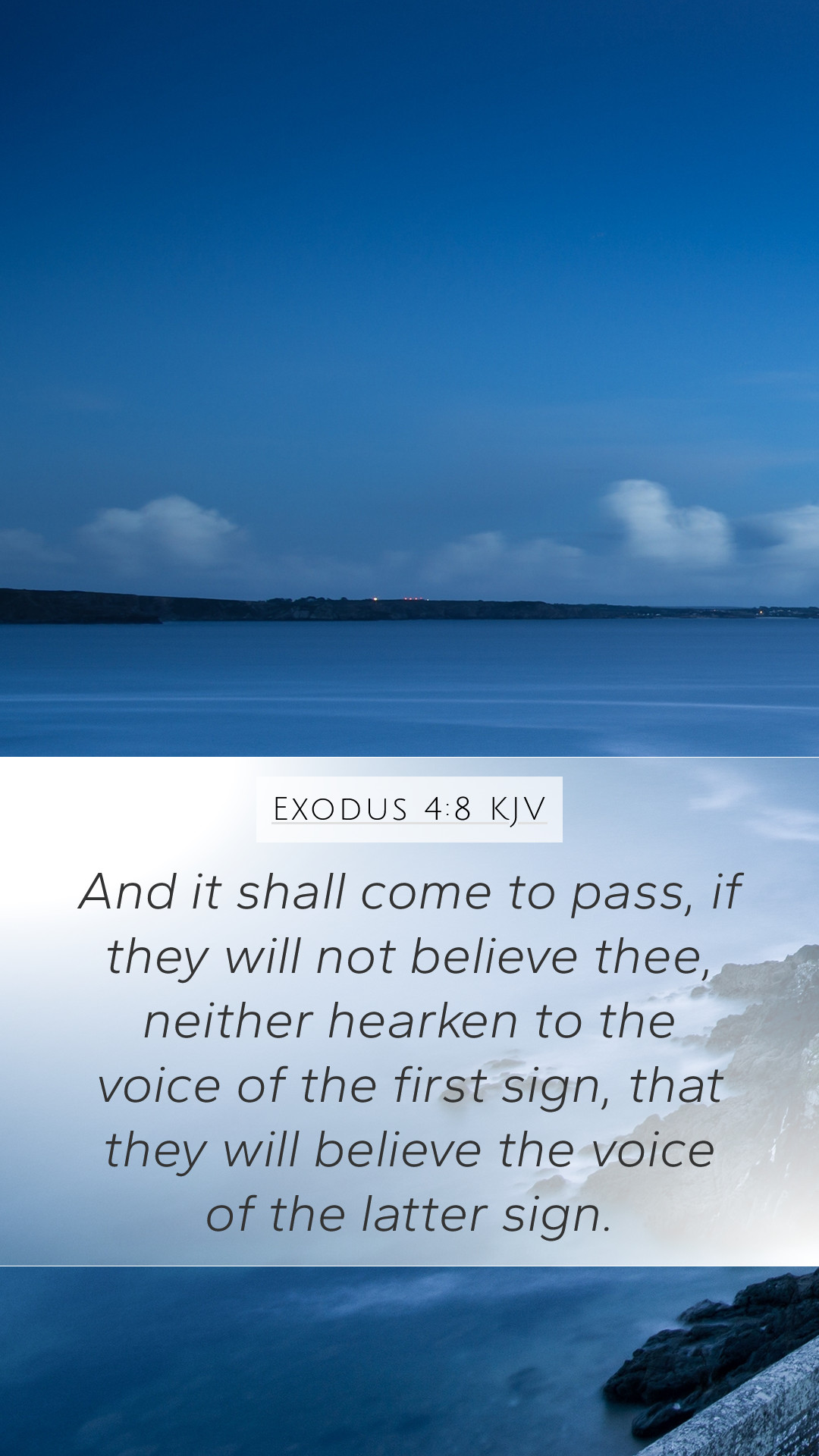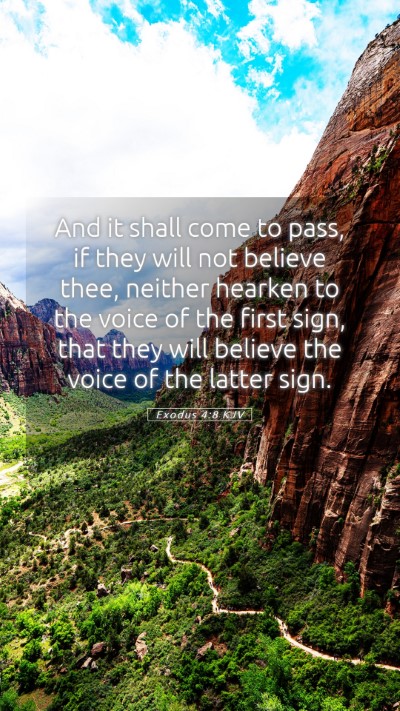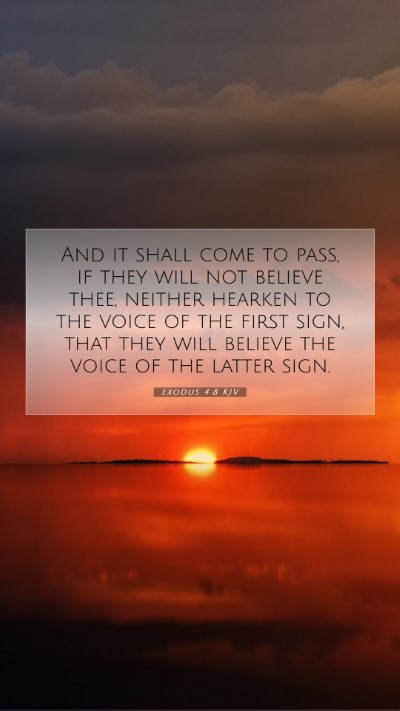Exodus 4:8 - Understanding Its Meaning
Exodus 4:8 states: "And it shall come to pass, if they will not believe thee, neither hearken to the voice of the first sign, that they will believe the voice of the latter sign." This verse emphasizes the importance of signs from God as aids for belief and reflects the continuing concern of divine communication with humanity. Below, we explore the rich commentary on this scripture to help readers with Bible verse meanings, interpretations, and understandings.
Contextual Overview
In the larger narrative of Exodus, God is commissioning Moses to lead the Israelites out of Egypt. Moses expresses doubts about his capabilities and the people’s willingness to believe him. In this context, God provides signs to confirm Moses’ mission and elevate his authority as a prophet.
Commentary Insights
This verse has been elucidated by various public domain commentaries:
Matthew Henry's Commentary
Matthew Henry emphasizes that the signs serve as a proof of God’s presence and power. He notes that in situations where faith is weak, God grants tangible signs to strengthen belief. The sequence of signs is a divine strategy to capture the attention of the Israelites and convince them of Moses’ God-given mission.
Albert Barnes' Commentary
Albert Barnes highlights the conditional nature of belief, stating that if the first sign fails to convince the Israelites, they may still be persuaded by the second sign. This illustrates how God is accommodating human skepticism and is willing to engage with it through multiple forms of revelation. Barnes draws attention to the broader theme of God’s patience and methods to foster faith among His people.
Adam Clarke's Commentary
Adam Clarke delves into the significance of signs and wonders in the journey of faith. He points out that the multiple signs are not only for the Israelites but also serve as evidence for Moses’ own convictions. According to Clarke, God’s approach through signs is a reminder of His involvement in human affairs and His willingness to validate the faith of His followers.
Theological Implications
Exodus 4:8 raises important theological themes such as:
- The nature of divine revelation: God chooses to reveal Himself through signs, highlighting that faith can sometimes require external validation.
- Human doubt and divine patience: The passage reflects God’s understanding of human skepticism; it portrays a God who is eager to alleviate doubts through tangible proofs.
- Role of signs in faith development: Signs are tools that facilitate belief, indicating that faith is a journey where God meets believers at their level of understanding.
Cross References
Understanding Exodus 4:8 can be enriched by cross-references to:
- Exodus 3:12: God’s promise of support to Moses as he leads the Israelites.
- Exodus 4:1: Moses’ concern about being believed by the people.
- John 4:48: Jesus’ comment on the necessity of signs for belief.
Application for Today
For modern readers, Exodus 4:8 invites reflection on the significance of signs in faith journeys. It may prompt questions like:
- What signs has God provided in my life to guide my faith?
- How can I strengthen my belief when faced with doubt?
- In what ways can I be a sign of faith to others?
Conclusion
Exodus 4:8 stands as a powerful affirmation of God’s commitment to guide His people through signs and wonders. This commentary, enriched by insights from prominent theologians, provides a framework for deeper Bible study insights, helping believers understand how to interpret Bible verses, apply them to daily life, and explore the historical context of their faith.
For those engaging in Bible study groups or seeking online Bible study resources, this verse serves as an excellent topic for exploration, discussion, and personal reflection.


